#Kotone Hanase
Photo
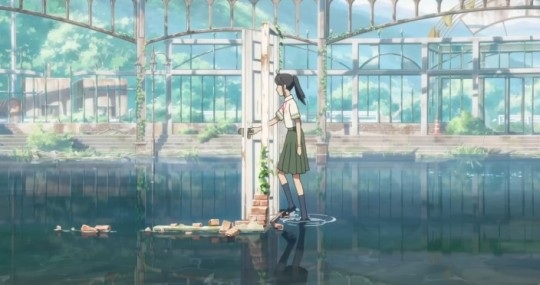
Suzume (2022, Japan)
How dramatic Makoto Shinkai’s rise has been. The Japanese animator and filmmaker, with his background in video game animation, is far away from the narrative and editing incoherence that plagued his early works, such as The Place Promised in Our Early Days (2004) and 5 Centimeters Per Second (2007). At first, neither film made viewers outside Japan take much notice. A decade later, Your Name (2016) commercially rocketed past all Shinkai films before it and, before one knew it, would go on to surpass Spirited Away (2001) as the highest-grossing anime of all time. The body-switching romantic comedy remains Shinkai’s best film, although Suzume comes much closer than I expected.
In my write-up to Your Name after its North American release, I speculated that the film’s success in Japan might be due to its allusions to the 2011 earthquake and tsunami off the coast of northern Honshu, the Tôhoku region – potentially some sort of cinematic catharsis. Though the imagery that Shinkai employed in Your Name would be unmistakable to any Japanese person who witnessed the destruction of that day, he invoked those images seemingly for the sake of aesthetic appeal. So too was this the case for Weathering with You (2019) – a film that drowned Tokyo in constant rain in service of an epochally selfish decision in pursuit of teenage romance. As such, Shinkai’s insistence to this day that Weathering with You is a film about climate change collapses entirely in the film’s finale. Suzume doubles down on Shinkai’s shtick for teen romance and obsession for how light reflects off water, but now he has made a film where the repercussions of the Tôhoku earthquake and tsunami and the subsequent Fukushima Daiichi nuclear disaster are front and center. This is his most honest film.
17-year-old Suzume Iwato (Nanoka Hara; Akari Miura as a young girl) lives with her aunt (Eri Fukatsu) on Kyūshū, the southernmost of the major Japanese islands. On the way to school one day, she passes by an attractive, long-haired fellow named Sôta Munataka (Hokuto Matsumura) who asks about local ruins. She points the way to an abandoned onsen, and – following her romantic longings rather than common sense – follows him. At the onsen, she finds a door, standing alone without supports. After she removes a totem that transforms into a cat (Ann Yamane) that scurries away, the door leads to a grassy field, with picturesque blues and reds streaking across a starlit sky. Arriving at school later, she later notices that something resembling a gigantic red worm is emanating from the door’s location. She rushes back, noticing Sôta struggling to close the door, and lends a hand to shut and lock the door – but not without the worm (which no one except these two can see) crashing to the ground and causing a sizable earthquake. Sôta explains he is a “closer” – part of a line of individuals who search for these doors and ensures that they remain shut. Failure to do so results in cataclysmic earthquakes. Against her aunt’s wishes, Suzume will follow Sôta northwards, towards Honshu. The cat, Daijin, must revert to a keystone in order to prevent further disaster.
A few decades into his film career, Shinkai’s undisciplined writing of his character’s emotions remains. Complicating everything is the fact that Daijin turns Sôta into something that should be inanimate. In interviews, Shinkai has defended this decision as the only way to have any sort of comic relief amid the film’s themes – a curious statement to make, as half of Suzume’s comedy has little to do with Sôta’s transformation, instead centering on our characters’ habits and flaws. The original plan was for Suzume to fall for another young woman, but producers nixed the idea, believing such a development too controversial for Japanese audiences*. Shinkai’s decision to make Sôta non-human puts Suzume on the brink of slapstick absurdity. Even though it remarkably allows some of the best character animation from a filmmaker not regarded for that (yes, character animation for an otherwise inanimate object), this absurdity can occasionally deprive Suzume of some much-needed pathos. Only in the Suzume’s final third does that pathos become apparent, and it arrives less powerfully than it should because of Shinkai’s decision to transform Sôta.
Combined with Suzume’s tendency to make hormone-influenced decisions during both the quieter and most perilous moments of her journey with Sôta – I am all for female characters having romantic agency, but there are times and places for when expressing or acting upon romantic feelings is appropriate – Shinkai’s teenage romantic writing can feel tactless at worst, tacky at best. Yet, because Shinkai is upfront about Suzume’s desires from the beginning (unlike the does-he-love-her-or-doesn’t-he-love-her waffling in Your Name and Weathering with You), it makes Suzume’s finale less baffling than his previous two works. Concerningly, in Your Name and Weathering with You, a natural disaster is an inconvenience to two teenagers barely realizing their love for each other. Not this time, thankfully, because of Suzume’s forwardness.
Suzume’s success comes from the tradition of live-action Japanese cinema to reflect – whether directly or otherwise – on national tragedy. When the United States ended its postwar occupation of Japan in April 1952, it also halted the censorship of topics such as the occupation itself, World War II, and other topics that the censors might object to. One could read the previous sentence and draw rash conclusions: namely, that American censorship shackled Japanese artistry. Perhaps it did, but plenty of exceptions exist, such as Yasujirô Ozu’s entire post-War filmography (even during the occupation). In Ozu’s post-War films, the families in those works quietly observe or accept the gradual Westernization of their culture, most evident in changes in nuptial and familial norms, and articulated with subtle, but great artistry. Censors have a way in sometimes making art’s politics less didactic – no less powerful, much more palatable. Now without American censors, films like Gojira (or Godzilla; 1954), Twenty-Four Eyes (1954), and The Burmese Harp (1956) wrestled with the morality of WWII, the apocalyptic consequences of nuclear weapons, and Japan’s war crimes inflicted upon its Asian neighbors (over the last few decades, Japanese filmmakers have become increasingly hesitant to engage in the last topic).
On March 11, 2011, a 9.0 or 9.1 earthquake struck off the east coast of Tôhoku. The resulting tsunami killed thousands and displaced hundreds of thousands, as well as triggering a nuclear meltdown at the Fukushima Daiichi Nuclear Power Plant. On 3/11 and the days after, images of the ocean swallowing buildings whole, boats now perched atop half-ruined rooftops, and clocks frozen at 3:25 PM made their way around a now-interconnected world. No sense can ever be made of nature’s randomness, and the loss of life in its wake. Suzume is a film that understands this, long before Shinkai truly shows what his film is about (accepting past tragedy and trauma) and what it champions (living life completely). Before we fully learn about Suzume’s loss on 3/11, Shinkai is content to introduce us to partake in some narrative detours. Those detours introduce the audience to side characters living their lives humbly, with little fanfare, and a joie de vivre. Notice the joy of the motorcycle-riding produce seller, content with the verdant beauty of her home and the rural simple living. The laid-back and unfussy Tomoya Serizawa (Ryūnosuke Kamiki; whose character is Sôta’s best friend) takes each day as is as he attempts to earn a teaching credential. Until then (and I suspect even after he becomes a teacher), he enjoys cruising along in his convertible, blasting a Spotify playlist with playful oldies such as Yumi Arai’s “Rūju no Dengon” (a familiar tune to fans of 1989’s Kiki’s Delivery Service), Yuki Saito’s “Sotsugyô”, among others.
These detours contrast with a device (that Shinkai also uses) more characteristic of Japanese cinema, or at least most Japanese cinema that has been exported to the West. That device is mono no aware (“the impermanence of things”) – with practitioners including some of the greatest Japanese filmmakers of all time such as Ozu and Isao Takahata (1988’s Grave of the Fireflies, 2014’s The Tale of the Princess Kaguya). This refers to character behaviors or individual shots that emphasize how life is fleeting and precious. In that contrast of Suzume’s loss and the joyfulness of her companions, there is an implicit understanding that Japanese culture, as our characters know it, is disappearing (one might say “transforming”). It is there in the beautifully-drawn abandoned buildings – the onsens, the schoolhouses – alluding to Japan’s demographic changes, as well as the implication that there are fewer “closers” in Japan than there used to be. For an economy once pegged to lead the future in Asia, Japan’s stagnant financial reality is reflected in the supporting cast, all of whom are hardscrabble folks neither struggling nor prospering. Sometimes that change happens suddenly, as what happened to Suzume on 3/11, leaving behind a towering sea wall and imprints of former homes as nature reclaims these once-devastated places.
The trick, Shinkai says, is to acknowledge the tragedies of the past, for all its effects on the present. At the same time, one must press forward, to live as completely as possible in the days we have afforded to us. As simple as that may be to articulate verbally or cinematically, it is a much different proposition in practice, on both counts. If Suzume presented this message inelegantly, the film would be a maudlin exercise. Touch too lightly on these themes, and the film drowns in its heavily expository dialogue. Shinkai may too fervently focus on the romantic and the comedic in spurts, but Suzume eventually upholds the film’s ultimate thesis, so that Suzume can find true happiness today and in the future while in full acceptance of her past.
youtube
With any Makoto Shinkai film post-Your Name, one expects the band RADWIMPS to score the film and provide a wealth of original songs. This time, the lone notable song is the title number, “Suzume”, and it only appears in full during the end credits, rather than the characteristic Shinkai-esque montage. Performed by RADWIMPS and featuring the TikTok singer Toaka on vocals, the sixteen-note motif in “Suzume” (even when Toaka is on vocals and not vocalizing the motif, the motif is played as the harmonic line) is a hypnotically memorable idea that serves as Suzume’s motif for the film’s entirety. Together, RADWIMPS and co-composer Kazuma Jinnouchi (Halo 5: Guardians and “The Ninth Jedi” from Star Wars: Visions; like Shinkai, Jinnouchi got his start in the video game industry) craft a gorgeous score unafraid to mix styles and instrumentations.
The action scoring as heard in “Abandoned Resort” makes full use of Japanese instruments and an ominous choir on top of orchestra – lending the scene that it accompanies an immediate tension that bolsters the sense of danger in closing the door. Similar orchestrations in the other door-closing scenes are likewise as effective as this. In other moments, a wildly jazzy “Cat Chase” sets the pace for a chaotic pursuit early in the film, all while adding to the scene’s hilarity. A simple conversation between piano and strings such as in “Time for Two” introduces secondary romantic motifs for those moments when the action slows down and Suzume has Sôta on her mind. But perhaps the most effective musical moment occurs while our two leads are in Tokyo, and Suzume makes the decision to return home in “Suzume’s Departure”. It might not be the most musically interesting cue, but RADWIMPS and Jinnouchi’s restraint to delay Suzume’s motif until absolutely necessary pays off in emotional dividends that only film music can accomplish. By some distance, this is the most beautifully scored and fascinatingly orchestrated film in Shinkai’s filmography, and a stunning achievement for RADWIMPS and Jinnouchi.
There is no doubting that Makoto Shinkai is one of the most important filmmakers in Japan at this moment. He is the figurehead for a generation of directors for whom anime has always been their foremost cultural influence – with all the strengths and substantial limitations that entails. And like those he succeeds but does not quite emulate (Ozu and his contemporaries, but more closely the likes of Hayao Miyazaki and the late Takahata), Shinkai has made a film grounded upon the aftermath of a national disaster. For the first time, those intentions and allusions are clear. The directness of feeling in Suzume is a refreshing change for him, granting the film an emotive sincerity that none of his previous works can match. Indeed, some of his expository, romantic, and comedic writing threatens to render his work as tasteless. Yet with utter conviction in his writing and filmmaking, Shinkai presents that the goodwill and kindness of others is essential following tragedy. I might take issue with Shinkai’s approach, but I have no arguments there. Following the footsteps of great directors and their films in the years after another national calamity, Suzume, though imperfect, is Shinkai at his most humanistic.
My rating: 7.5/10
^ Based on my personal imdb rating. My interpretation of that ratings system can be found in the “Ratings system” page on my blog (as of July 1, 2020, tumblr is not permitting certain posts with links to appear on tag pages, so I cannot provide the URL). Half-points are always rounded down.
* Broadly, Japanese society is not hostile towards LGBTQ+ persons. However, the nation’s politics – which have long been defined by remarkably low participation rates for an industrialized democracy, especially from younger generations – is conservative on queer rights. The ruling Liberal Democratic Party (LDP) has been in power almost continuously since its founding in 1955, and the party has always been against same-sex marriage.
#Suzume#Suzume no Tojimari#Makoto Shinkai#Koichiro Ito#Genki Kawamura#Nanoka Hara#Akari Miura#Hokuto Matsumara#Eri Fukatsu#Shota Sometani#Sairi Ito#Kotone Hanase#Kana Hanazawa#Matsumoto Hakuo II#Ann Yamane#RADWIMPS#Kazuma Jinnouchi#Toaka#My Movie Odyssey
16 notes
·
View notes
Photo

New Suzume no Tojimari Visual & Trailers Revealed
https://wp.me/p4jiOt-dbX
The official website of Makoto Shinkai‘s upcoming anime film Suzume no Tojimari (Sparrow’s Door Closure) has a brand new visual…
#2022#anime#anime movie#cast#Eri Fukatsu#Fall#Fall 2022#film#Hokuto Matsumura#images#Kana Hanazawa#Kenichi Tsuchiya#Kotone Hanase#Makoto Shinkai#Masayoshi Tanaka#movie#Nanoka Hara#Sairi Itou#Shouta Sometani#Sparrow's Door Closure#Staff#Suzume no Tojimari#Takumi Tanji#trailer#video#visual#アニメ#すずめの戸締まり
2 notes
·
View notes
Text
Suzume
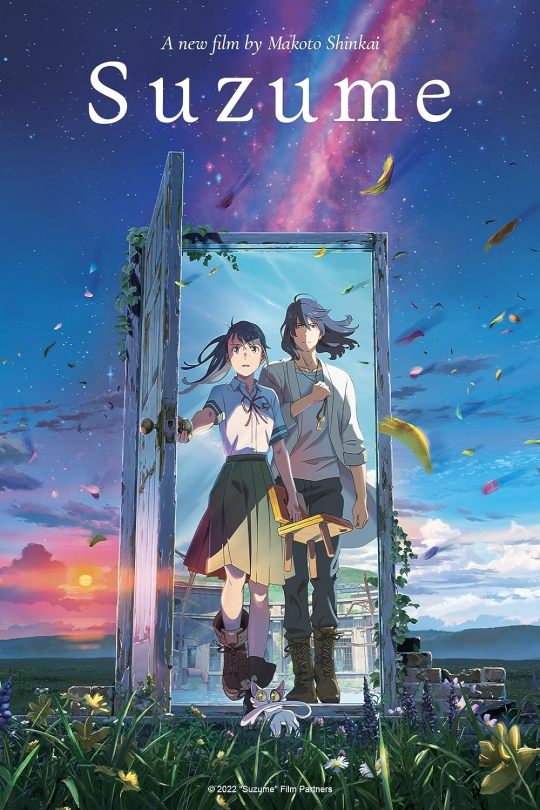
Movies watched in 2024
Suzume (2022, Japan)
Director & Writer: Makoto Shinkai
Mini-review:
Makoto Shinkai has definitely found his stride. He just excels at making these visually stunning movies that pack quite an emotional punch. It's true that his stories are rather predictable by now, but this one has enough refreshing elements to make it fully engaging, like the road-movie vibes that permeate the plot. Also, I really liked that the film went straight to the point right away, cause it hooks you from the beginning. And of course, the visuals are nothing short of awe-inspiring, but I expected no less of this director. If there's one thing I didn't like, that would be the age gap between the leads. The story would have worked just as well (or even better) if the characters had been the same age. But still, Suzume more than met my expectations, and I'll be looking forward to Shinkai's future works.
#suzume#suzume no tojimari#makoto shinkai#suzume iwato#souta munakata#daijin#nanoka hara#hokuto matsumura#eri fukatsu#shota sometani#sairi ito#kotone hanase#kana hanazawa#matsumoto hakuou ii#ryunosuke kamiki#ann yamane#aimi#anime#fantasy#romance#movies watched in 2024
0 notes
Text

Time 21-Apr-2023 15:20
Day Friday
Where Cineworld - Rushden Lakes
Screen 9
Seat H11
Price £3.23
#suzume#nanoka hara#Hokuto Matsumura#Eri Fukatsu#Shôta Sometani#Sairi Itô#Kotone Hanase#Kana Hanazawa
0 notes
Video
youtube
Suzume - PV2 (with English captions)
Suzume will hit Japanese theaters on November 11, 2022. Crunchyroll, Sony Pictures Entertainment, and Wild Bunch International will release the film worldwide except in Asia in Early 2023.
Cast
Hokuto Matsumura as Sōta Munakata
Nanoka Hara as Suzume Iwato
Ann Yamane as Daijin (AristoCat)
Eri Fukatsu as Tamaki Iwato
Kana Hanazawa as Tsubame Iwato
Kotone Hanase as Chika Amabe
Matsumoto Hakuō II as Hitsujirō Munakata
Sairi Itō as Rumi Ninomiya
Shōta Sometani as Minoru Okabe
Aimi as Miki
Akari Miura as Suzume Iwato (child)
Ryunosuke Kamiki as Tomoya Serizawa
Staff
Original Story / Screenplay / Director: Makoto Shinkai
Character Design: Masayoshi Tanaka
Animation Director: Kenichi Tsuchiya
Art Director: Takumi Tanji
Animation Production: CoMix Wave
Synopsis
On the other side of the door, was time in its entirety—
17-year-old Suzume’s journey begins in a quiet town in Kyushu when she encounters a young man who tells her, “I’m looking for a door.” What Suzume finds is a single weathered door standing upright in the midst of ruins as though it was shielded from whatever catastrophe struck. Seemingly mesmerized by its power, Suzume reaches for the knob…
Doors begin to open one after another all across Japan, unleashing destruction upon any who are near. Suzume must close these portals to prevent further disaster.
The stars
The sunset
The morning sky
Within that realm, it was as though all time had melted together in the sky—
Drawn in by this mysterious door, Suzume’s journey is about to begin.
14 notes
·
View notes
Text

#ProyeccionDeVida
🎬 “SUZUME” [Suzume no tojimari]
🔎 Género: Animación / Fantástico / Aventuras / Drama / Sobrenatural./Adolescencia
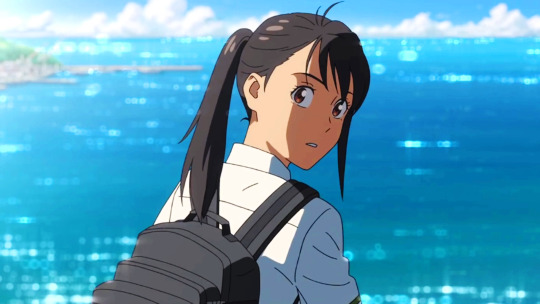
⌛️ Duración: 122 minutos
✍️ Guion: Makoto Shinkai
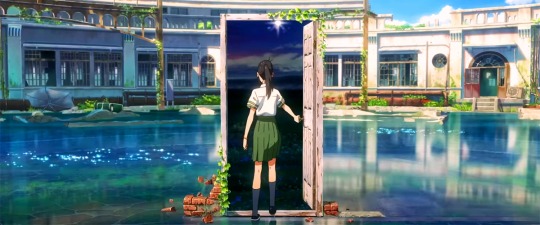
🎼 Música: Kazuma Jinnouchi & Radwimps
🗯 Argumento: Una joven de diecisiete años Suzume ayuda a un misterioso joven a cerrar las puertas de otro mundo, que están provocando desastres en todo Japón.
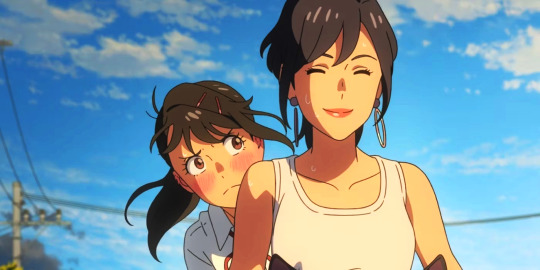
👥 Reparto: Daijin (Ann Yamane), Souta Munakata (Hokuto Matsumura), Suzume Iwato (Nanoka Hara), Tomoya Serizawa (Ryūnosuke Kamiki), Tamaki Iwato (Eri Fukatsu), Tsubame Iwato (Kana Hanazawa) y Chika Amabe (Kotone Hanase)
📢 Dirección: Makoto Shinkai
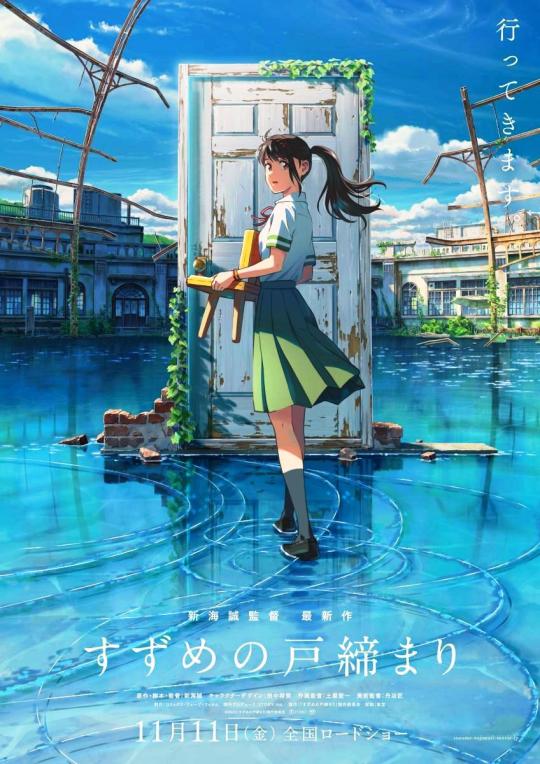
© Productoras: CoMix Wave Films, Story, Aniplex, Kadokawa, Lawson Entertainment & Voque Ting
🎞 Distribuidora: Toho
🌎 País: Japón
📅 Año: 2022

📽 Proyección:
📆 Jueves 04 de Abril
🕗 8:00pm.
🎦 Cine Caleta (calle Aurelio de Souza 225 - Barranco)
🚶♀️🚶♂️ Ingreso libre
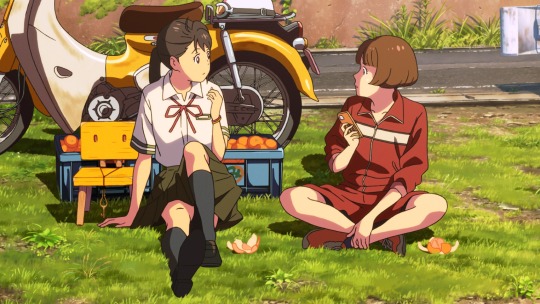
🙂 A tener en cuenta: Prohibido el ingreso de bebidas y comidas. 🌳💚🌻🌛
0 notes
Text
在线观看遥远的地方 2023 完整版中文字幕-1080p
Info about 在线观看遥远的地方 2023 完整版中文字幕 in July 2023 剧情 Category
Title : 在线观看遥远的地方 2023 完整版中文字幕
Link : 在线观看遥远的地方 2023 完整版中文字幕
在线观看遥远的地方 2023 完整版中文字幕
Read also :
在线观看Croma Kid 2023 完整版中文字幕
在线观看长空之王 2023 完整版中文字幕
在线观看八角笼中 2023 完整版中文字幕
在线观看Tayuan 2023 完整版中文字幕
在线观看See You On Venus 2023 完整版中文字幕
在线观看遥远的地方 2023 完整版中文字幕 - Hello, readers of chinese muvie, Welcome and thank you for visiting our site. In this post with the title 在线观看遥远的地方 2023 完整版中文字幕, we have made and prepared it as best as possible so that all readers can easily understand the contents of this post. We hope that the contents in the 剧情 category, which we write, can be more easily understood by you and useful for you all. Alright, happy reading.
在线观看遥远的地方 2023 完整版中文字幕
{遥远的地方 2023 完整電影高清質量|遥远的地方 2023 完整電影英文字幕|遥远的地方 2023 完整電影英文字幕|遥远的地方 2023 完整電影在線免費|遥远的地方 2023 完整電影|遠いところ 2023 完整電影}
觀看 遥远的地方 2023 完整電影和下載 遥远的地方 2023 高清質量
在哪裡觀看 遥远的地方 高清版?,在線觀看和下載 遥远的地方 2023 點擊下方按鈕!
在線觀看 遥远的地方 2023 英文和高清質量的完整電影,免費下載 < ?php echo $row['title'];?> 2023 高清和英文字幕的完整電影。
在這篇文章中,我們將知道在哪裡觀看 遥远的地方 在線免費高清電影,無需剪輯,從而享受家人,單獨或與朋友一起觀看當今最好的電影,例如 遥远的地方 2023。認識免費在線觀看電影的最佳頁面。
遥远的地方 詳情
手表 遥远的地方 2023 完整版高清画质
流派:剧情
演員:Kotone Hanase, Yumemi Ishida, Yoshiro Sakuma, Ayano Ogura, Shinsuke Kato, Shogen
工作室:Rabbit House
運行時間:128 分鐘
遥远的地方 2023 全高清可用
460p - 720p - 1080p - 4K - BDrip - DVD - 藍光
享受 遥远的地方 2023 在線完整電影,免費提供高清質量和英文字幕
遥远的地方 - 概述
一个不加修饰的视角展示了冲绳贫困生活。17岁的葵为了赚取房租和养活自���的小儿子以及懒惰的丈夫,从事夜总会陪酒工作。然而,现实需要变得多么黑暗才会扼杀透过来的希望之光呢?
在線觀看 遥远的地方 2023 英文完整電影或您的語言字幕,高清 - 甚至 4K 圖像質量無需剪輯或中斷,即可輕鬆免費觀看年度最佳電影和電視劇。 這些網站究竟是什麼?在這裡,我們詳細介紹了您需要了解的一切,並隨時隨地觀看最佳電影,並與任何您想看的人一起觀看。 您甚至將學習如何以絕對合法和安全的方式在線下載免費電影, 無需每月訂閱付費流媒體服務,例如 Netflix、HBO GO、Amazon Prime Video、Hulu、Claro Video、Fox Premium、Movistar Play、DirecTV、Crackle 或 Blim,或從 Google Play 或 App Store 下載應用程序 這不會幫助你滿足電影和連續劇的渴望。 對你來說還不夠嗎?你想要更多的技巧嗎?我們還將教您如何使用付費網站觀看電影、連續劇和紀錄片,而無需支付任何費用, 如果可能,還有 Netflix 的密碼。另外,至於系列。您可以觀看動作片、恐怖片、冒險劇、墨西哥和土耳其肥皂劇、戲劇、動漫等等,例如最新上映的電影和電視劇。 我們甚至會告訴您在秘魯、墨西哥、西班牙、美國、哥倫比亞、阿根廷、西班牙和世界其他國家/地區的影院的廣告牌上有哪些電影。 是的,最新版本!例如?對於大多數發行的電影,這些最佳影院網站都已提供。 您肯定不止一次在 Google 上搜索過如何免費在線觀看 遥远的地方 2023 電影或在哪裡看 遥远的地方 2023 高清電影。
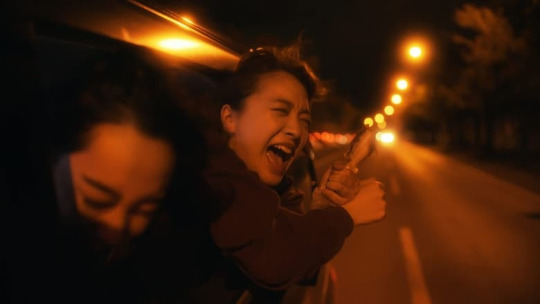
谷歌標籤和關鍵詞:
遥远的地方 2023 完整版高清质量, 遥远的地方 2023 完整版中文字幕, 遥远的地方 2023 完整版中文字幕, 在线观看 遥远的地方 2023 完整版高清画质, 在线观看 遥远的地方 2023 完整版中文字幕, 在线观看 遥远的地方 2023 完整版中文字幕, 下载 遥远的地方 2023 完整版高清质量, 下载 遥远的地方 2023 完整版中文字幕, 下载遥远的地方 2023 完整版中文字幕, 遠いところ 2023 完整版, 遥远的地方 2023 完整版阿拉伯语字幕, 遥远的地方 2023 完整版保加利亚语字幕, 遥远的地方 2023 加泰罗尼亚语字幕的完整版, 遥远的地方 2023 完整版中文字幕, 遥远的地方 2023 完整版捷克语字幕, 遥远的地方 2023 完整版丹麦语字幕, 遥远的地方 2023 完整版荷兰语字幕, 遥远的地方 2023 完整版英文字幕, 遥远的地方 2023 完整版法语字幕, 遥远的地方 2023 完整版格鲁吉亚语字幕, 遥远的地方 2023 完整版德语字幕, 遥远的地方 2023 完整版匈牙利语字幕, 遥远的地方 2023 完整版爱尔兰语字幕, 遥远的地方 2023 完整版意大利语字幕, 遥远的地方 2023 完整版日文字幕, 遥远的地方 2023 完整版韩文字幕, 遥远的地方 2023 完整版马来语字幕, 遥远的地方 2023 完整版挪威语字幕, 遥远的地方 2023 完整版波兰语字幕, 遥远的地方 2023 完整版葡萄牙语字幕, 遥远的地方 2023 完整版罗马尼亚语字幕, 遥远的地方 2023 完整版俄语字幕, 遥远的地方 2023 完整版西班牙语字幕, 遥远的地方 2023 完整版瑞典语字幕, 遥远的地方 2023 完整版土耳其语字幕, 遥远的地方 2023 完整版乌克兰语字幕
遥远的地方 2023 高清画质完整版
遥远的地方 2023 完整版中文字幕
遥远的地方 2023完整版中文字幕
遥远的地方 2023完整版在线
遥远的地方 2023完整版流
在线观看遥远的地方 2023 完整版高清画质
在线观看遥远的地方 2023 完整版中文字幕
在线观看遥远的地方 2023 完整版中文字幕
下载遥远的地方 2023 完整版高清画质
下载遥远的地方 2023 完整版中文字幕
下载遥远的地方 2023 完整版中文字幕
遥远的地方 2023完整版
遠いところ 2023 完整版
Tags
遥远的地方 2023 完整版高清质量, 遥远的地方 2023 完整版中文字幕, 遥远的地方 2023 完整版中文字幕, 在线观看 遥远的地方 2023 完整版高清画质, 在线观看 遥远的地方 2023 完整版中文字幕, 在线观看 遥远的地方 2023 完整版中文字幕, 下载 遥远的地方 2023 完整版高清质量, 下载 遥远的地方 2023 完整版中文字幕, 下载遥远的地方 2023 完整版中文字幕, 遠いところ 2023 完整版
End of post with the title 在线观看遥远的地方 2023 完整版中文字幕
0 notes
Video
SUZUME
Release Date: April 14, 2023 | Theaters
SYNOPSIS:
A modern action adventure road story where a 17-year-old girl named Suzume helps a mysterious young man close doors from the outer side that are releasing disasters all over in Japan
REVIEW:
As a fan of Shinkai's movies, I was not surprised by the incredible visuals and accompanying score. But, as with many of his films, it's the plot that lets it down. The story line is weak and uses Shinkai's talent to hold it up.
It's not the standard of 'Your Name', but I'd rate it above 'Weathering With You'. You won't be disappointed watching this, but you won't be overwhelmed either.
CAST: Nanoka Hara, Hokuto Matsumura, Eri Fukatsu, Shota Sometani, Sairi Ito, Kotone Hanase, Kana Hanazawa, Matsumoto Hakuō II
0 notes
Photo

[Announcement] 舞台「東京リベンジャーズ」-血のハロウィン編- (butai tokyo revengers -chi no halloween hen-)
you will be able to watch 4 shows @ dmm
price: ¥3.500 (each) → [2-shows-set ¥6.000 / 4-shows-set ¥11.000]
[notice: you might need to use a VPN to watch/get access the show^^]
◎ 大阪 前楽 (Osaka maeraku)
[March 21st, 2022 ~ 11:30]
◎ 大阪 千秋楽 (Osaka senshuuraku)
[March 21st, 2022 ~ 16:00]
◎ 東京 前楽 (Tokyo maeraku)
[April 3rd, 2022 ~ 12:00]
◎ 東京 千秋楽 (Tokyo senshuuraku)
[April 3rd, 2022 ~ 16:30]
#東京リベンジャーズ#tokyo revengers#木津つばさ#kizu tsubasa#植田圭輔#ueda keisuke#上田堪大#ueda kandai#赤澤燈#akazawa tomoru#花瀬琴音#hanase kotone#野口準#noguchi jun#中尾暢樹#nakao masaki#相澤莉多#aizawa rita#中島大地#nakashima daichi#新田健太#nitta kenta#菊池修司#kikuchi shuuji#結城伽寿也#yuuki kazuya#陳内将#jinnai shou#松田凌#matsuda ryou
42 notes
·
View notes
Video
youtube
[Video] 舞台「東京リベンジャーズ」-血のハロウィン編- (butai tokyo revengers -chi no halloween hen-)
#東京リベンジャーズ#tokyo revengers#木津つばさ#kizu tsubasa#植田圭輔#ueda keisuke#上田堪大#ueda kandai#赤澤燈#akazawa tomoru#花瀬琴音#hanase kotone#野口準#noguchi jun#中尾暢樹#nakao masaki#相澤莉多#aizawa rita#中島大地#nakashima daichi#新田健太#nitta kenta#菊池修司#kikuchi shuuji#結城伽寿也#yuuki kazuya#陳内将#jinnai shou#松田凌#matsuda ryou
12 notes
·
View notes
Photo

[Announcement] 舞台「東京リベンジャーズ」-血のハロウィン編- (butai tokyo revengers -chi no halloween hen-)
the DVD/Blu-ray will be released on October 5th, 2022☆ ☆ ☆
#東京リベンジャーズ#tokyo revengers#木津つばさ#kizu tsubasa#植田圭輔#ueda keisuke#上田堪大#ueda kandai#赤澤燈#akazawa tomoru#花瀬琴音#hanase kotone#野口準#noguchi jun#中尾暢樹#nakao masaki#相澤莉多#aizawa rita#中島大地#nakashima daichi#新田健太#nitta kenta#菊池修司#kikuchi shuuji#結城伽寿也#yuuki kazuya#陳内将#jinnai shou#松田凌#matsuda ryou
16 notes
·
View notes
Photo

[Announcement] 舞台「東京リベンジャーズ」-血のハロウィン編- (butai tokyo revengers -chi no halloween hen-)
the last 4 shows got cancelled due to one of the actors being infected... _| ̄|○
meaning the maeraku and senshuuraku streams got cancelled as well...
but there is still hope for those of you who were looking forward to the stream:
大阪 前楽 (Osaka maeraku) & 大阪 千秋楽 (Osaka senshuuraku) are still available @ dmm (~ April 10th, 2022)
price: ¥3.500 (each)
#東京リベンジャーズ#tokyo revengers#木津つばさ#kizu tsubasa#植田圭輔#ueda keisuke#上田堪大#ueda kandai#赤澤燈#akazawa tomoru#花瀬琴音#hanase kotone#野口準#noguchi jun#中尾暢樹#nakao masaki#相澤莉多#aizawa rita#中島大地#nakashima daichi#新田健太#nitta kenta#菊池修司#kikuchi shuuji#結城伽寿也#yuuki kazuya#陳内将#jinnai shou#松田凌#matsuda ryou
11 notes
·
View notes
Photo
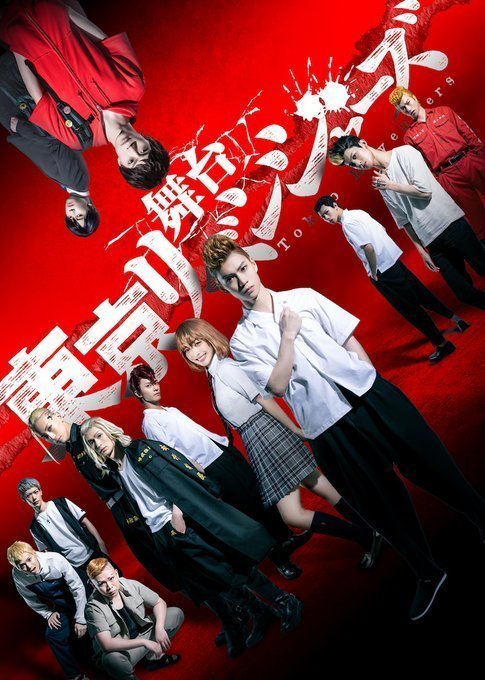
[Announcement] 舞台「東京リベンジャーズ」(butai tokyo revengers)
you will be able to watch it @ TBSチャンネル2 (September 27th, 2021 ~ 1am & October 3rd, 2021 ~ 23:00)
#東京リベンジャーズ#tokyo revengers#木津つばさ#kizu tsubasa#花瀬琴音#hanase kotone#野口準#noguchi jun#松田凌#matsuda ryou#陳内将#jinnai shou#中尾暢樹#nakao masaki#川隅美慎#kawasumi bishin#中島大地#nakashima daichi#相澤莉多#aizawa rita#菊池修司#kikuchi shuuji#桜庭大翔#sakuraba haruto#新田健太#nitta kenta
29 notes
·
View notes
Photo


[Update] 舞台「東京リベンジャーズ」-血のハロウィン編- (butai tokyo revengers -chi no halloween hen-)
cast update under the cut^^
Cast:
Kizu Tsubasa as Hanagaki Takemichi (花垣武道)
Ueda Keisuke as Matsuno Chifuyu (松野千冬)
Ueda Kandai as Bachi Keisuke (場地圭介)
Akazawa Tomoru as Hanemiya Kazutora (羽���一虎)
Hanase Kotone as Tachibana Hinata (橘日向)
Noguchi Jun as Tachibana Naoto (橘直人)
Nakao Masaki as Sendou Atsushi (千堂敦)
Aizawa Rita as Mitsuya Takashi (三ツ谷隆)
Nakashima Daichi as Hayashida Haruki (林田春樹)
Nitta Kenta as Osanai Nobutaka (長内信高)
Kikuchi Shuuji as Hanma Shuuji (半間修二)
Yuuki Kazuya as Kisaki Tetta (稀咲鉄太)
Jinnai Shou as Ryuuguuji Ken (龍宮寺堅)
Matsuda Ryou as Sano Manjirou (佐野万次郎)
homepage
twitter
natalie
#東京リベンジャーズ#tokyo revengers#木津つばさ#kizu tsubasa#植田圭輔#ueda keisuke#上田堪大#ueda kandai#赤澤燈#akazawa tomoru#花瀬琴音#hanase kotone#野口準#noguchi jun#中尾暢樹#nakao masaki#相澤莉多#aizawa rita#中島大地#nakashima daichi#新田健太#nitta kenta#菊池修司#kikuchi shuuji#結城伽寿也#yuuki kazuya#陳内将#jinnai shou#松田凌#matsuda ryou
8 notes
·
View notes
Photo

[Announcement] 舞台「東京リベンジャーズ」-血のハロウィン編- (butai tokyo revengers -chi no halloween hen-)
the show will be running from March 18th, 2022 to March 21st, 2022 (Osaka) @ COOL JAPAN PARK OSAKA WW ホール (COOL JAPAN PARK OSAKA WW Hall) & March 24th, 2022 to April 3rd, 2022 (Tokyo) @ サンシャイン劇場 (Sunshie Gekijou)
Cast:
Kizu Tsubasa as Hanagaki Takemichi (花垣武道)
Hanase Kotone as Tachibana Hinata (橘日向)
Noguchi Jun as Tachibana Naoto (橘直人)
Matsuda Ryou as Sano Manjirou (佐野万次郎)
Jinnai Shou as Ryuuguuji Ken (龍宮寺堅)
Nakao Masaki as Sendou Atsushi (千堂敦)
Aizawa Rita as Mitsuya Takashi (三ツ谷隆)
Nakashima Daichi as Hayashida Haruki (林田春樹)
Nitta Kenta as Osanai Nobutaka (長内信高)
Kikuchi Shuuji as Hanma Shuuji (半間修二)
homepage
twitter
natalie
#東京リベンジャーズ#tokyo revengers#木津つばさ#kizu tsubasa#花瀬琴音#hanase kotone#野口準#noguchi jun#松田凌#matsuda ryou#陳内将#jinnai shou#中尾暢樹#nakao masaki#相澤莉多#aizawa rita#中島大地#nakashima daichi#新田健太#nitta kenta#菊池修司#kikuchi shuuji
7 notes
·
View notes
Photo
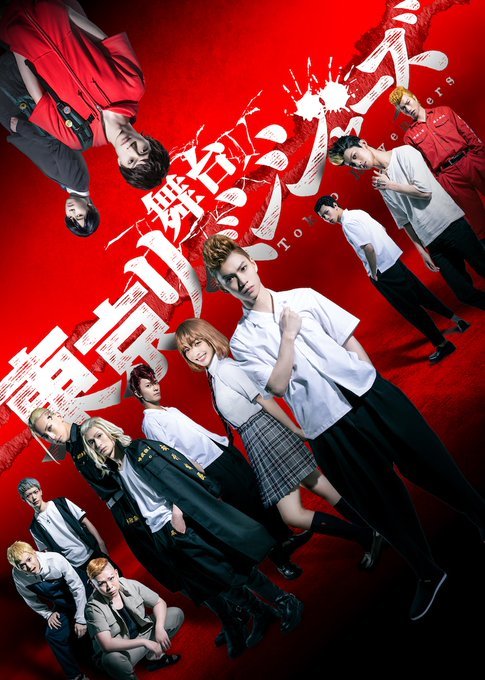
[Pic] 舞台「東京リベンジャーズ」(butai tokyo revengers)
main visual ↑↑↑ update^^
homepage
#東京リベンジャーズ#tokyo revengers#木津つばさ#kizu tsubasa#花瀬琴音#hanase kotone#野口準#noguchi jun#松田凌#matsuda ryou#陳内将#jinnai shou#中尾暢樹#nakao masaki#川隅美慎#kawasumi bishin#中島大地#nakashima daichi#相澤莉多#aizawa rita#菊池修司#kikuchi shuuji#桜庭大翔#sakuraba haruto#新田健太#nitta kenta
20 notes
·
View notes